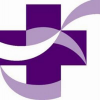Description
Summary :
The competent Nurse, in the same or similar clinical setting, practices independently and demonstrates an awareness of all relevant aspects of a situation.
Provides routine and complex care, with the ability to on long-range goals or plans. Continues to develop the ability to cope with and manage contingencies of clinical nursing.
Makes appropriate assignments and delegates to other care providers as a means to help manage the clinical situation.
Responsibilities :
- Meets expectations of the applicable OneCHRISTUS Competencies : Leader of Self, Leader of Others, or Leader of Leaders.
- Consistent with the ANA Scope and Standards of Practice, provides nursing care utilizing the nursing process, including assessment, diagnosis, planning, intervention and evaluation for assigned patients.
- Addresses increasingly complex psychological, emotional, cultural, and social needs of patient and families in accordance with their level of practice.
- Using the appropriate protocol, administers medications and treatments; monitors for side-effects and effectiveness of the treatment prescribed.
- Documents patient history, symptoms, medication, and care given.
- Assess learning needs and provides education to patients, family members and / or care givers; identify issues and resources.
CORE COMPETENCIES
Standard I : Utilizes the Nursing Process
- Uses critical thinking skills to assess the basic physical, psychosocial, social, cultural, spiritual, and development needs of patient and families
- Communicates findings to appropriate healthcare team members
- Develops and uses a specific plan of care and modifies it to meet individual patient needs using evidence-based practice
- Implements patient care and therapeutic procedures; monitors and documents progression of treatment and teaching goals
- Evaluates the care and treatment(s) provided to the patient and the patient response to the care and treatment(s)
- Performs timely reassessment and documentation
- Must be able to perform unit-specific competencies based on the specific patient care need for the designated unit's patient population
Standard II. Patient Throughput & Patient Flow Process
- Anticipates and plans for admission / discharge / transfer needs to facilitate patient flow
- Utilizes appropriate systems of communication and tools to facilitate the discharge process
- Coaches on tools and techniques for checking, cross checking and validating orders to ensure accuracy
Standard III. Unit Operations
- Plans, directs, and evaluates the overall nursing care and functions in a particular nursing unit during an assigned shift
- Demonstrates good stewardship in proper use and maintenance of equipment and Supplies
- Assesses departmental staffing needs; actively participates in resourcing efforts.
- Educates and trains others on the operations, ethics, and regulations within the industry
Standard IV. Safe Practice / Quality Care / Regulations
- Incorporates patient safety practices / guidelines to promote a safe environment resulting in positive patient outcomes
- Demonstrates accountability for nursing research and quality improvement activities
- Provides evidence-based nursing care
- Communicates patient information effectively across the continuum of care
- Educates and trains others on the operations, ethics, and regulations within the industry
- Knowledge of federal, state and local healthcare-related laws and regulations; ability to comply with these in healthcare practices and activities
TECHNICAL COMPETENCIES
Clinical Policies and Standards
- Follows a specific set of standards and associated clinical procedures
- Analyzes policy and standards documentation and ensures organizational compliance
- Provides feedback for improvement of procedures
- Assists in the development and implementation of specific procedures
- Works with control and monitoring mechanisms, tools and techniques
Health Information Documentation
- Shares experiences with maintaining paper and electronic patient documentation
- Walk through the steps and procedures for receiving, validating and updating patient records
- Describes the flow of information between various stations or units
- Discusses the functions, features and document flow of electronic documentation
- Transcribes verbal orders; explains techniques for ensuring their accuracy
- Explains health information documentation best practices and their rationale across health care practices
Medical Equipment
- Describes experience with basic medical equipment used in own unit or facility
- Uses standard diagnostic tools and techniques to resolves common equipment problems
- Educates patients about the appropriate use of home medical equipment
- Ensures that all equipment and related supplies are in proper working order prior to use to ensure patient safety
- Inspects, troubleshoots and evaluates incoming equipment
Medical Order Processing
- Shares experiences with processing medical orders for one or more groups of patients or conditions
- Describes functions and features of the system used to enter, validate, update and forward medical orders
- Discusses common errors, their sources and procedures for correcting
- Explains considerations for entering and following standing orders
- Differentiates between standing orders and preprinted orders and considerations for each
Patient Chart Reading and Interpretation
- Describes experiences in reading and interpreting patient charts for patients on unit and under own care
- Reviews patients’ charts for completion and accuracy; identifies and alerts to mistakes or omissions
- Recognizes unexpected readings and alerts nursing or medical staff
- Relates examples of mis-readings or misinterpretations and lessons learned
- Reviews, discusses and validates own interpretation with others
Patient Safety
- Shares experiences with ensuring safety for one or more patient groups or settings
- Explains key features of safety guidelines and procedures for those groups and settings
- Listens and responds to safety inquiries from patients and family members
- Recognizes and addresses physiological and psychological signs of problems
- Describes considerations for patients who can cause to harm to self, versus harm to others
- Utilizes appropriate systems to document misses and near misses, participates in immediate investigating, analysis and reporting in real-time
Requirements : Experience :
Experience :
1 year of experience in the related nursing specialty preferred
Education :
Bachelor of Science Degree in Nursing, preferred
Licenses / Certifications / Registrations :
- RN License in state of employment or compact
- BLS required
Work Schedule : 7AM - 7PM
7AM - 7PM
Work Type : Full Time
Full Time
EEO is the law -









